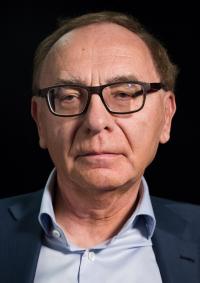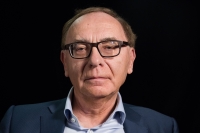I wouldn‘t have wanted to live in communist Czechoslovakia anyway

Stáhnout obrázek
Horst Martin was born in 1940 in Mariánské Lázně (Marienbad). His father was responsible for the maintenance of local parks and greenery and thanks to his previous jobs, he knew Czech as well as German. During WW II, Mariánské Lázně were a military hospital town, which was spared from bombing and so Horst had a relatively calm childhood. This was put to an end by the post-war developments. Although his family would have probably been allowed to stay in Czechoslovakia, and Horst‘s father wished to do that, they did not want to be left behind alone after most of their relatives and friends had left. In 1946, they were expatriated to Hessen. The beginnings there were hard since the local village people were not very open towards the newcomers. Horst Martin worked in film industry, starting his career with the UFA Theater company and later establishing his own firm. At present, he and his wife own and run several cinema halls.

